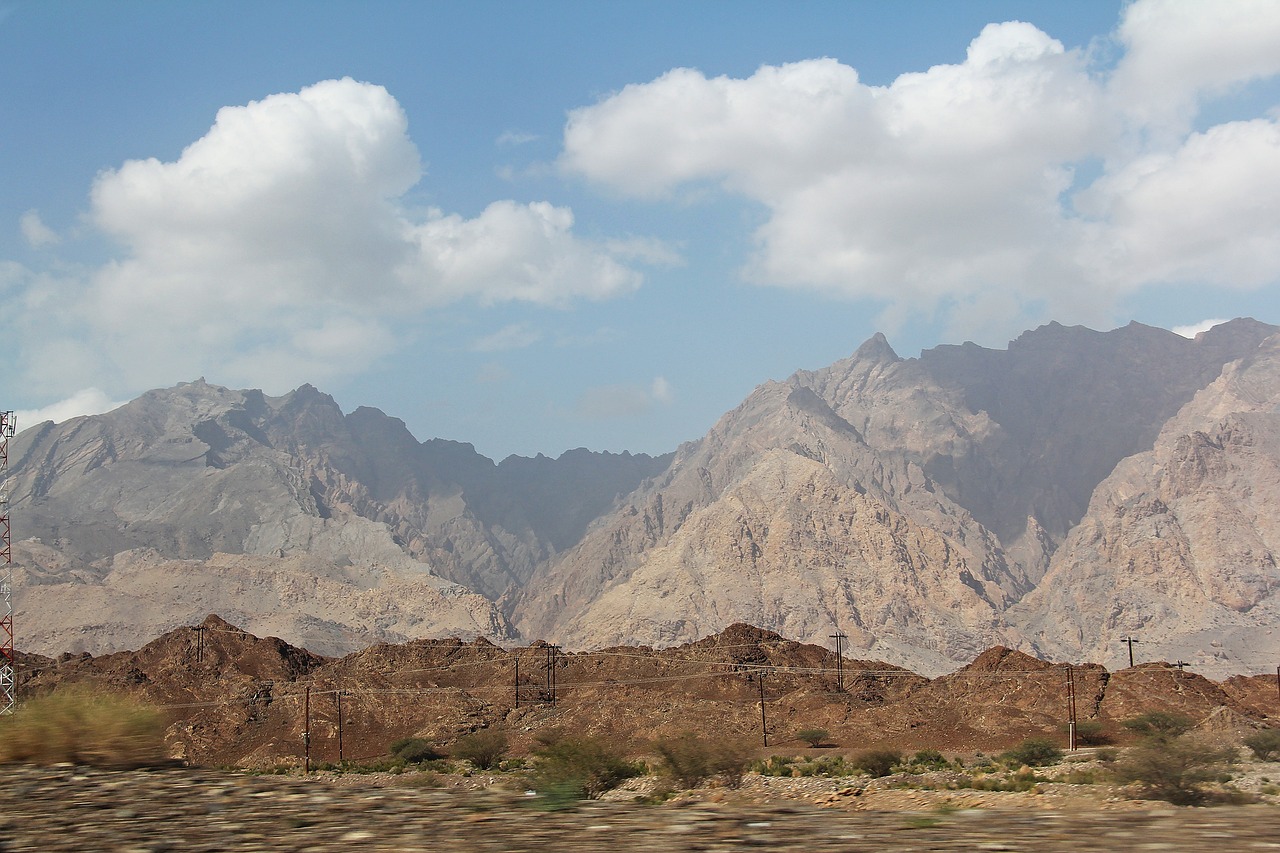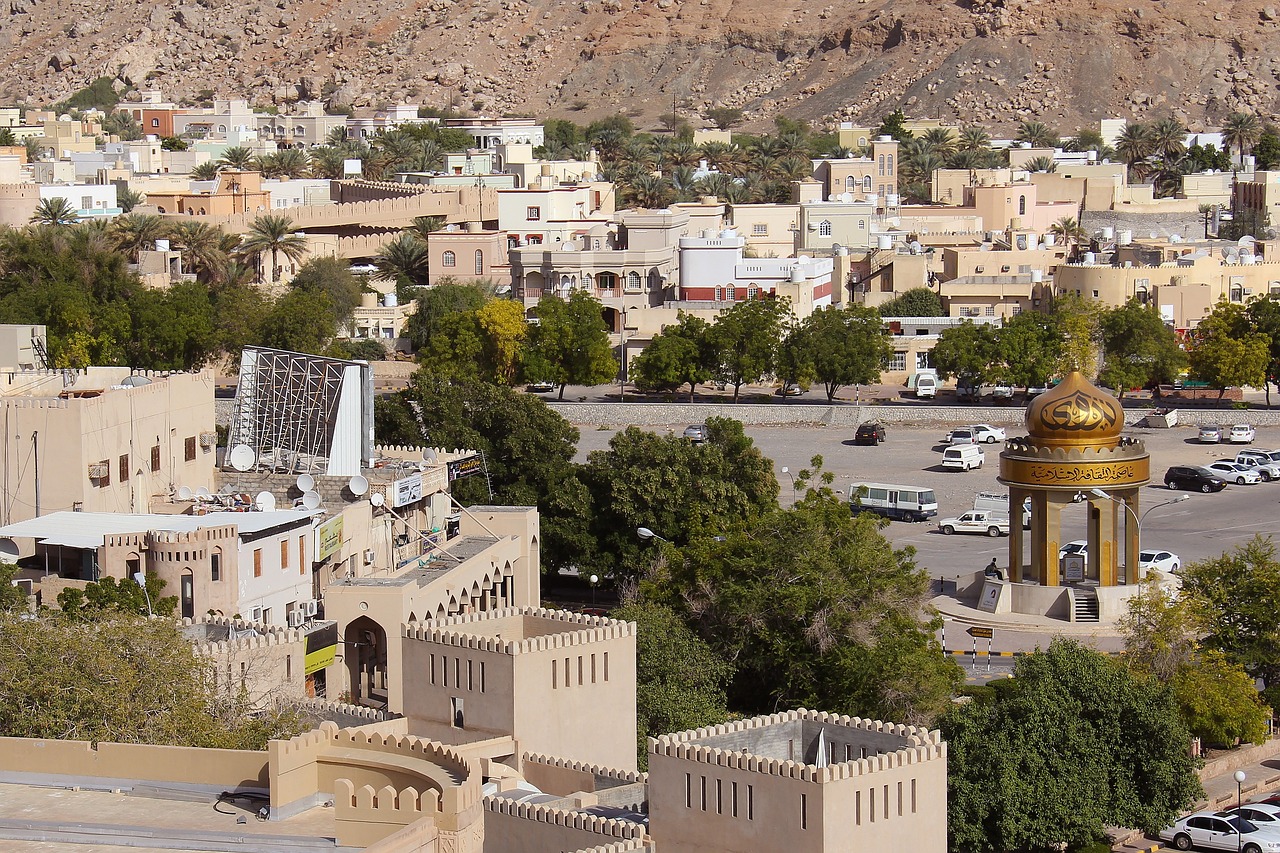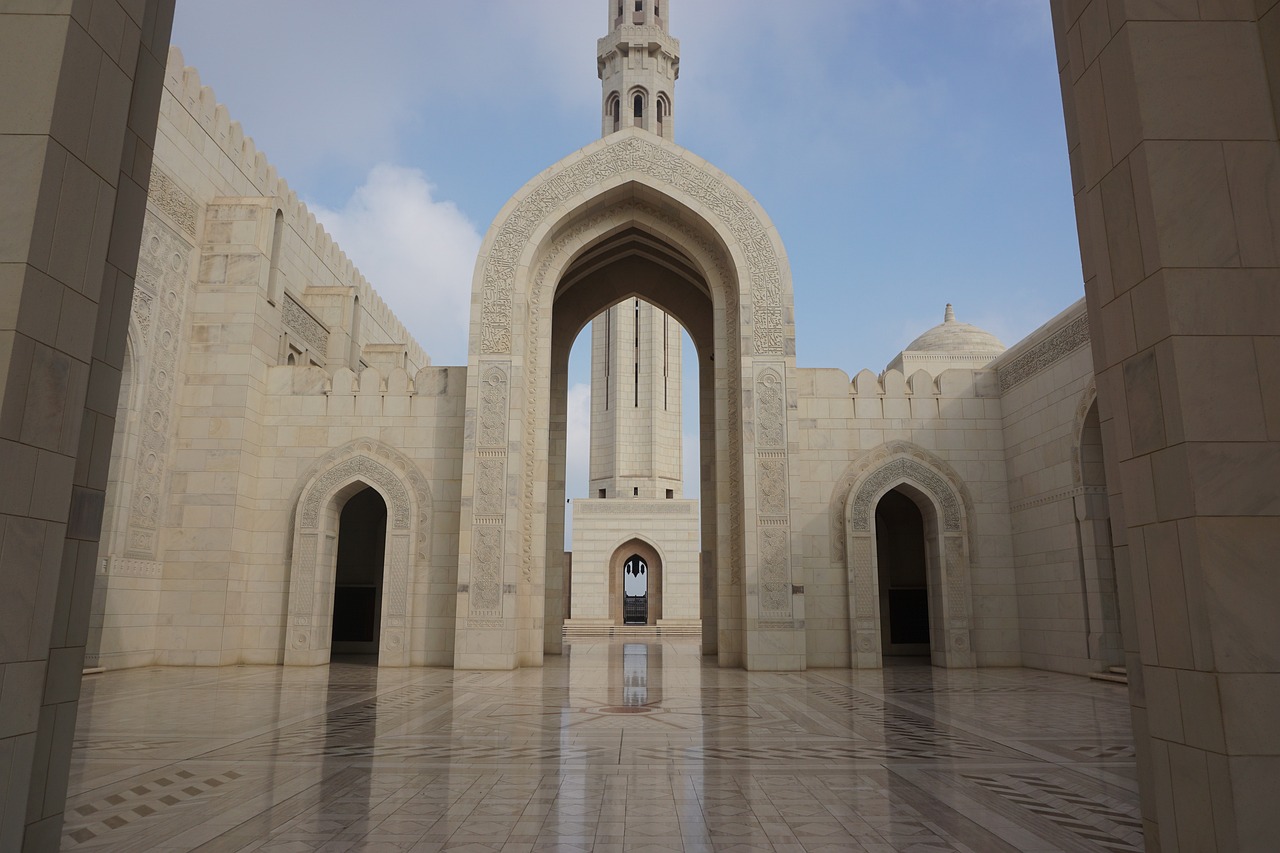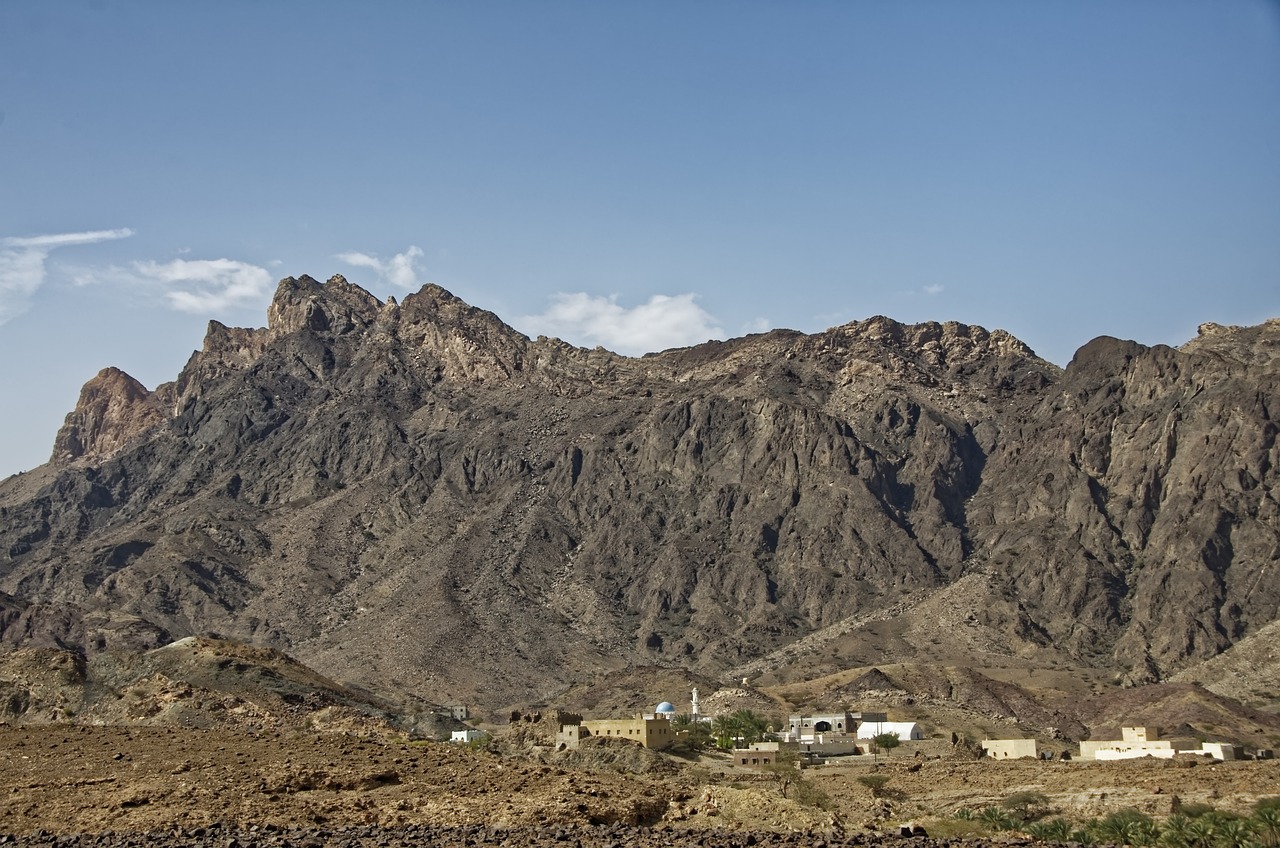Cultural Sensitivities: Understanding Local Norms in Oman
Oman, located on the southeastern coast of the Arabian Peninsula, is a country rich in history, culture, and traditions. To truly appreciate and respect the Omani way of life, it is essential to understand and adhere to the local norms and cultural sensitivities. This article aims to provide an in-depth exploration of these norms, offering insights into various aspects of Omani culture.
Section 1: Greetings and Hospitality
When interacting with Omanis, greetings play a significant role. The traditional greeting in Oman is “As-salamu alaykum,” meaning “peace be upon you.” It is customary to respond with “Wa alaykum as-salam,” meaning “and upon you be peace.” Handshakes are commonly exchanged between men, while women may greet each other with a nod and a smile. It is essential to maintain eye contact and show respect during greetings.
- Customary Greetings: Omanis place great importance on greetings. A warm and respectful greeting sets the tone for any interaction.
- Hospitality: Omani hospitality is renowned worldwide. Visitors are often welcomed with open arms and offered refreshments.
- Respecting Personal Space: While Omanis are warm and welcoming, it is important to respect personal space.
In Oman, it is customary to greet people with a smile and a polite greeting. This gesture reflects the Omani value of hospitality and shows respect for the other person.
Omani hospitality is deeply ingrained in the culture. Guests are treated with great respect and are often offered traditional Omani coffee (kahwa) and dates as a gesture of hospitality.
Omanis value personal space, so it is important to avoid invading someone’s personal space during conversations or interactions. Maintaining an appropriate distance shows respect for cultural norms.
Section 2: Dress Code and Modesty
Dress code and modesty are significant cultural aspects in Oman. The Omani society follows conservative Islamic traditions, and it is important to dress modestly and respectfully, especially in public places.
- Traditional Omani Attire: The national dress for Omani men is the dishdasha, a long white robe, while women wear the abaya, a loose-fitting black cloak.
- Respecting Religious Sites: When visiting mosques or other religious sites, it is essential to dress modestly and remove footwear.
- Beachwear: While Oman has stunning beaches, it is important to respect local customs when it comes to beachwear.
Wearing traditional Omani attire is highly respected and appreciated. Visitors are not expected to wear the traditional dress but should dress modestly, covering their shoulders and knees.
Modesty is crucial when visiting religious sites. Women should cover their heads with a scarf, and both men and women should avoid wearing revealing clothing.
When visiting public beaches, it is advisable to wear modest beachwear that covers the body appropriately. Bikinis and revealing swimwear are best reserved for private resorts or designated areas.
Oman Image 1:

Section 3: Dining Etiquette and Food Customs
Omani cuisine is a blend of Arabian, Indian, and Persian influences, with an emphasis on flavorsome spices and aromatic ingredients. Understanding the dining etiquette and food customs is crucial for a positive dining experience in Oman.
- Dining Invitations: If invited to an Omani home for a meal, it is considered polite to accept the invitation.
- Eating with Right Hand: In Omani culture, eating with the right hand is the norm.
- Sharing Food: Omani meals are often served family-style, with dishes placed in the center for everyone to share.
Omanis take pride in their culinary traditions and often invite guests to share a meal. Accepting such invitations is a way to experience Omani hospitality and build connections.
Using the right hand to eat is a cultural practice rooted in Islamic traditions. It is important to avoid using the left hand, as it is considered unclean.
Sharing food is a common practice in Omani culture. It is customary to taste a little of everything and show appreciation for the host’s cooking.
Section 4: Gender Roles and Interactions
Omani society follows traditional gender roles, and it is important to be aware of the cultural expectations and norms surrounding gender interactions.
- Gender Segregation: In public spaces, there may be separate areas designated for men and women.
- Modesty in Interactions: When interacting with the opposite gender, it is important to maintain modesty and respect boundaries.
Some public spaces, such as mosques or certain events, may have separate areas for men and women. It is important to respect these divisions and follow the guidelines provided.
Omani culture places great emphasis on modesty and respect in interactions between men and women. It is essential to avoid any behavior that may be perceived as inappropriate or disrespectful.
Oman Image 2:

Section 5: Religious Customs and Practices
Islam is the predominant religion in Oman, and religious customs and practices hold significant importance in Omani society.
- Prayer Times: Muslims in Oman adhere to the five daily prayers, and it is important to be respectful during prayer times.
- Ramadan: Ramadan is a holy month in Islam, and fasting from sunrise to sunset is observed.
During prayer times, it is customary to lower the volume of conversations and avoid any disruptive behavior out of respect for those praying.
During Ramadan, non-Muslims should be mindful of eating, drinking, or smoking in public during daylight hours. It is also advisable to avoid playing loud music out of respect for those who are fasting.
Section 6: Traditional Arts and Crafts
Oman has a rich tradition of arts and crafts, which reflect the country’s cultural heritage and craftsmanship.
- Silver Jewelry: Omani silver jewelry, often adorned with intricate designs, is a popular traditional craft.
- Frankincense: Frankincense holds great cultural and historical significance in Oman.
- Traditional Weaving: Omani textiles, such as shawls and rugs, are handwoven using traditional techniques.
Omani silver jewelry is known for its unique designs and craftsmanship. It is a popular souvenir among visitors, and purchasing authentic Omani silver jewelry supports local artisans.
Frankincense has been used in Omani culture for centuries. It is often burned as incense during religious ceremonies and can be found in local markets.
Traditional weaving is a skill passed down through generations in Oman. The intricate patterns and vibrant colors of Omani textiles showcase the country’s rich artistic heritage.
Oman Image 3:

Section 7: Social Etiquette and Customs
Understanding social etiquette and customs in Oman is essential to navigate social interactions with ease and respect.
- Respecting Elders: Omani culture places great importance on respecting elders and showing deference.
- Accepting Invitations: When invited to an Omani home or event, it is considered polite to accept the invitation.
- Gift Giving: When visiting an Omani home, it is customary to bring a small gift for the host.
Respecting elders is a fundamental value in Omani society. It is customary to greet and interact with older individuals with utmost respect.
Omani hospitality is extended through invitations, and accepting them is a way to show appreciation and build relationships within the community.
Gift giving is a gesture of appreciation and respect in Omani culture. It is customary to bring small gifts, such as dates or sweets, when visiting someone’s home.
Section 8: Traditional Celebrations and Festivals
Oman celebrates various traditional festivals and events throughout the year, providing an opportunity to experience the country’s vibrant culture.
- Eid al-Fitr: Eid al-Fitr marks the end of Ramadan and is a time of celebration and feasting.
- Renaissance Day: Oman celebrates Renaissance Day on July 23rd, commemorating the reign of Sultan Qaboos bin Said al Said.
- Oman National Day: Oman National Day is celebrated on November 18th, marking the country’s independence.
Eid al-Fitr is a joyous occasion in Oman, and it is customary to exchange greetings, visit family and friends, and indulge in traditional Omani sweets.
Renaissance Day is a national holiday in Oman, and celebrations include parades, fireworks, and cultural performances to honor the achievements of Sultan Qaboos.
Oman National Day is a time of national pride and celebration. Festivities include parades, traditional music performances, and fireworks.
Section 9: Nature and Outdoor Etiquette
Oman’s natural beauty, from its deserts to its mountains and coastline, offers ample opportunities for outdoor exploration. Respecting nature and following outdoor etiquette is essential to preserve the environment.
- Leave No Trace: When exploring Oman’s natural sites, it is important to leave no trace and respect the environment.
- Turtle Conservation: Oman is home to several species of turtles, and it is important to respect their nesting sites.
- Responsible Camping: Camping is a popular activity in Oman, and it is important to camp responsibly.
Preserving the natural beauty of Oman is crucial. It is important to pick up after oneself, avoid littering, and follow designated trails to minimize impact on the environment.
When visiting beaches known for turtle nesting, it is crucial to follow guidelines provided by conservation organizations and avoid disturbing the turtles or their nests.
When camping, it is essential to choose designated camping areas, extinguish campfires properly, and leave the campsite clean and undisturbed.
Oman Image 1:

Section 10: Traditional Music and Dance
Omani music and dance are integral parts of the country’s cultural heritage, reflecting the diversity and traditions of its people.
- Traditional Omani Music: Omani music often features traditional instruments such as the oud, rebab, and darbuka.
- Al Razha: Al Razha is a traditional Omani dance characterized by rhythmic footwork and hand movements.
Traditional Omani music showcases the country’s rich cultural heritage. It is often performed during special occasions and celebrations.
Al Razha is a dynamic dance form that is often performed during weddings and festive gatherings. It is a vibrant display of Omani culture.
Section 11: Language and Communication
Arabic is the official language of Oman, and while many Omanis speak English, understanding a few Arabic phrases can greatly enhance communication.
- Basic Arabic Phrases: Learning a few basic Arabic phrases can help in everyday interactions.
- Non-Verbal Communication: Non-verbal cues, such as maintaining eye contact and using appropriate gestures, are important in Omani culture.
Knowing greetings, expressions of gratitude, and basic phrases like “please” and “thank you” can go a long way in building rapport and showing respect.
Omanis value non-verbal communication, and it is important to be mindful of body language and facial expressions during conversations.
Section 12: Conclusion
Understanding and respecting the cultural sensitivities and local norms in Oman is essential for meaningful and respectful interactions with the Omani people. By embracing the traditions, customs, and values of Omani culture, visitors can create lasting memories and forge genuine connections in this beautiful country.
References
– oman.om
– ministryoftourism.om
– timesofoman.com
– muscatdaily.com
– nationalgeographic.com


